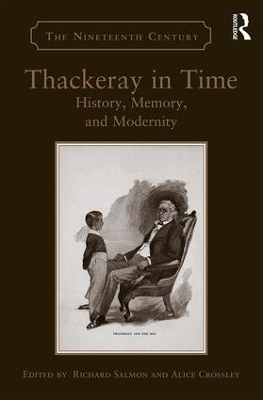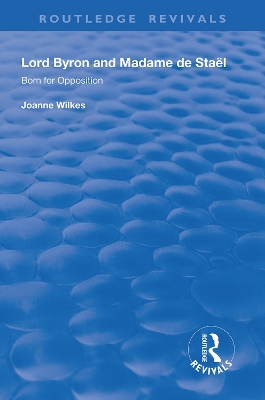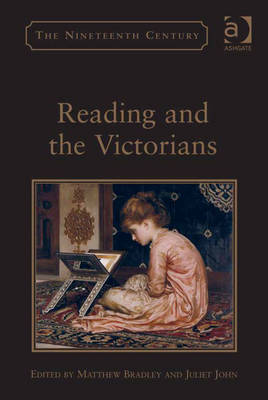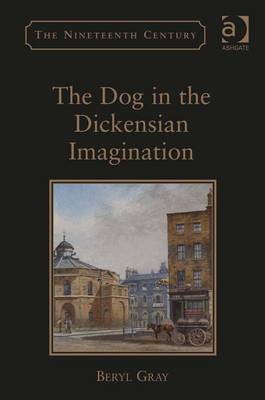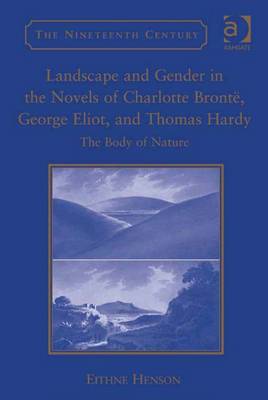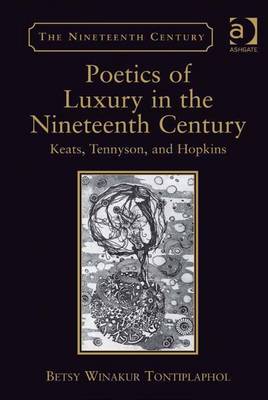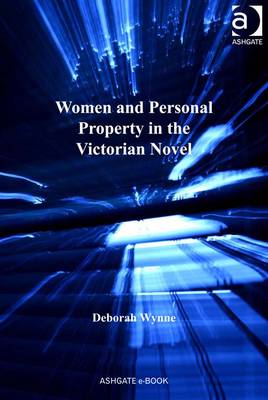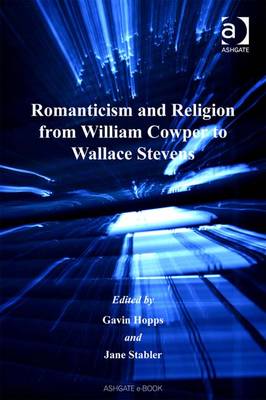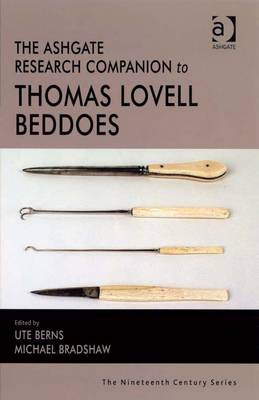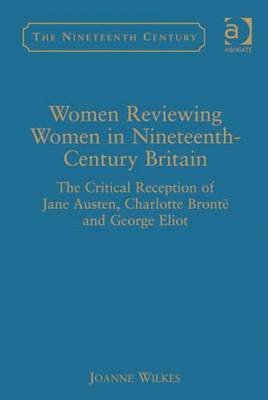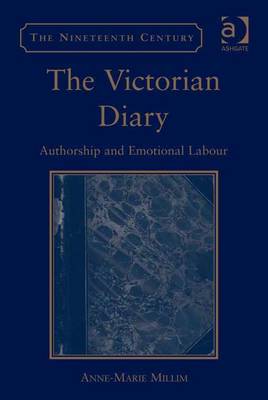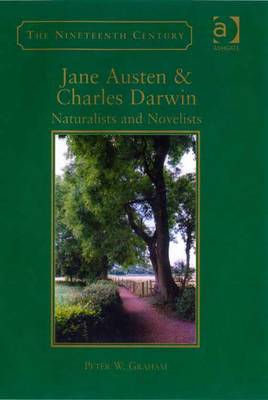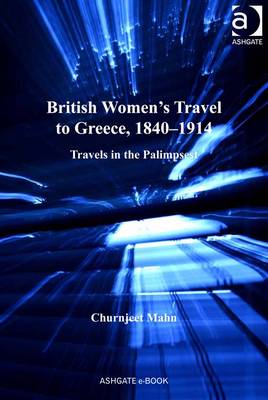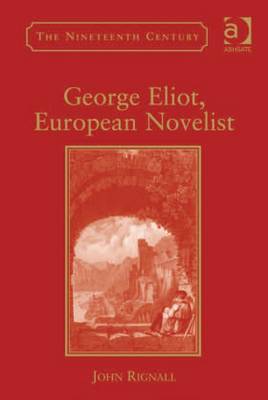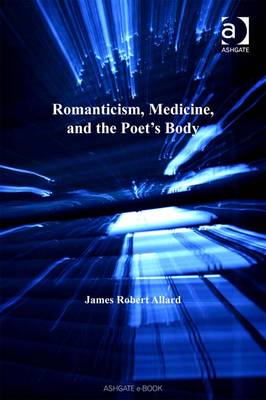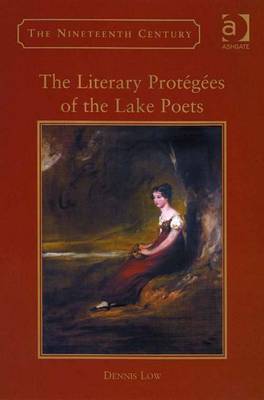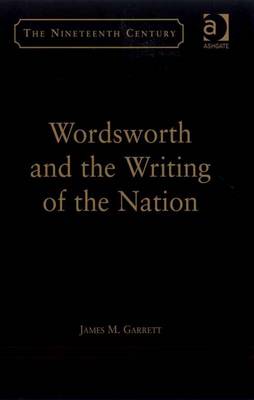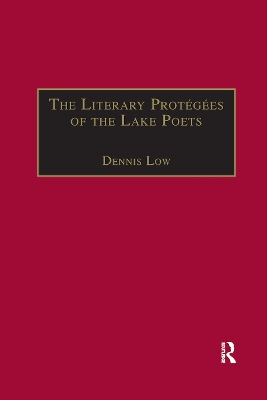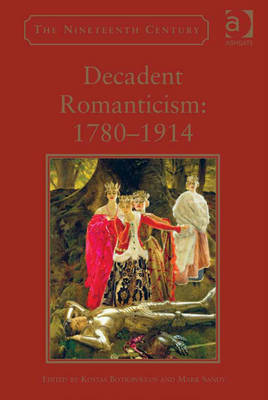The Nineteenth Century
20 total works
Thackeray in Time
An intense fascination with the experience of time has long been recognised as a distinctive feature of the writing of William Makepeace Thackeray (1811–1863). This collection of essays, however, represents the first sustained critical examination of Thackeray's 'time consciousness' in all its varied manifestations. Encompassing the full chronological span...
Read moreAn intense fascination with the experience of time has long been recognised as a distinctive feature of the writing of William Makepeace Thackeray (1811–1863). This collection of essays, however, represents the first sustained critical examination of Thackeray's 'time consciousness' in all its varied manifestations. Encompassing the full chronological span of the author's career and a wide range of literary forms and genres in which he worked, Thackeray in Time repositions Thackeray's temporal and historical self-consciousness in relation to the broader socio-cultural contexts of Victorian modernity. The first part of the collection focusses on some of the characteristic temporal modes of professional authorship and print culture in the mid-nineteenth century, including periodical journalism and the Christmas book market. Secondly, the volume offers fresh approaches to Thackeray's acknowledged status as a major exponent of historical fiction, reconsidering questions of historiography and the representation of place in such novels as Vanity Fair and Henry Esmond. The final part of the collection develops the central Thackerayan theme of memory within four very different but complementary contexts. Thackeray's absorption by memories of childhood in later life leads on to his own subsequent memorialisation by familial descendants and to the potential of digital technology for preserving and enhancing Thackeray's print archive in the future, and finally to the critical legacy perpetuated by generations of literary scholars since his death.
Published in 1999. Lord Byron and Madam de Stael made a great impression on Europe in the throes of the Napoleonic Wars, through their personalities, the versions of themselves which they projected through their works, and their literary engagement with contemporary life. However, the strong links between them have...
Read morePublished in 1999. Lord Byron and Madam de Stael made a great impression on Europe in the throes of the Napoleonic Wars, through their personalities, the versions of themselves which they projected through their works, and their literary engagement with contemporary life. However, the strong links between them have never before been explored in detail.
This pioneering study looks at their personal relations, from their verbal sparring in Regency society, through the friendship which developed in Switzerland after Byron left England in 1816, to Byron’s tributes to Mme de Stael after her death. It concentrates on their literary links, both direct responses to each other’s works, and the copious evidence of shared concerns. The study deals with their treatment of gender, their grappling with the possibilities for heroic endeavour, their engagement with the social and political situations of Britain, France and Italy, and their conceptions of the role of the writer.
Although Byron will need no introduction, Mme de Stael’s standing as a French romantic writer of the first rank is made plain by the strong impact of her writings on the English Poet.
Reading and the Victorians
What did reading mean to the Victorians? This question is the key point of departure for Reading and the Victorians, an examination of the era when reading underwent a swifter and more radical transformation than at any other moment in history. With book production handed over to the machines...
Read moreWhat did reading mean to the Victorians? This question is the key point of departure for Reading and the Victorians, an examination of the era when reading underwent a swifter and more radical transformation than at any other moment in history. With book production handed over to the machines and mass education boosting literacy to unprecedented levels, the norms of modern reading were being established. Essays examine the impact of tallow candles on Victorian reading, the reading practices encouraged by Mudie's Select Library and feminist periodicals, the relationship between author and reader as reflected in manuscript revisions and corrections, the experience of reading women's diaries, models of literacy in Our Mutual Friend, the implications of reading marks in Victorian texts, how computer technology has assisted the study of nineteenth-century reading practices, how Gladstone read his personal library, and what contemporary non-academic readers might owe to Victorian ideals of reading and community. Reading forms a genuine meeting place for historians, literary scholars, theorists, librarians, and historians of the book, and this diverse collection examines nineteenth-century reading in all its personal, historical, literary, and material contexts, while also asking fundamental questions about how we read the Victorians' reading in the present day.
Fascinated by them, unable to ignore them, and imaginatively stimulated by them, Charles Dickens was an acute and unsentimental reporter on the dogs he kept and encountered during a time when they were a burgeoning part of the nineteenth-century urban and domestic scene. As dogs inhabited Dickens's city, so...
Read moreFascinated by them, unable to ignore them, and imaginatively stimulated by them, Charles Dickens was an acute and unsentimental reporter on the dogs he kept and encountered during a time when they were a burgeoning part of the nineteenth-century urban and domestic scene. As dogs inhabited Dickens's city, so too did they populate his fiction, journalism, and letters. In the first book-length work of criticism on Dickens's relationship to canines, Beryl Gray shows that dogs, real and invented, were intrinsic to Dickens's vision and experience of London and to his representations of its life. Gray draws on an array of reminiscences by Dickens's friends, family, and fellow writers, and also situates her book within the context of nineteenth-century attitudes towards dogs as revealed in the periodical press, newspapers, and institutional archives. Integral to her study is her analysis of Dickens's texts in relationship to their illustrations by George Cruikshank and Hablot Knight Browne and to portraiture by late eighteenth- and nineteenth-century artists like Thomas Gainsborough and Edwin Landseer. The Dog in the Dickensian Imagination will not only enlighten readers and critics of Dickens and those interested in his life but will serve as an important resource for scholars interested in the Victorian city, the treatment of animals in literature and art, and attitudes towards animals in nineteenth-century Britain.
Landscape and Gender in the Novels of Charlotte Bronte, George Eliot, and Thomas Hardy
by Eithne Henson
Examining a wide range of representations of physical, metaphorical, and dream landscapes in Charlotte Bronte, George Eliot, and Thomas Hardy, Eithne Henson explores the way in which gender attitudes are expressed, both in descriptions of landscape as the human body and in ideas of nature. Henson discusses the influence...
Read moreExamining a wide range of representations of physical, metaphorical, and dream landscapes in Charlotte Bronte, George Eliot, and Thomas Hardy, Eithne Henson explores the way in which gender attitudes are expressed, both in descriptions of landscape as the human body and in ideas of nature. Henson discusses the influence of eighteenth-century aesthetic theory, particularly on Bronte and Eliot, and argues that Ruskinian aesthetics, Darwinism, and other scientific preoccupations of an industrializing economy, changed constructions of landscape in the later nineteenth century.
Henson examines the conventions of reading landscape, including the implied expectations of the reader, the question of the gendered narrator, how place defines the kind of action and characters in the novels, the importance of landscape in creating mood, the pastoral as a moral marker for readers, and the influence of changing aesthetic theory on the implied painterly models that the three authors reproduce in their work. She also considers how each writer defines the concept of Englishness against an internal or colonial Other. Alongside these concerns, Henson interrogates the ancient trope that equates woman with nature, and the effect of comparing women to natural objects or offering them as objects of the male gaze, typically to diminish or control them. Informed by close readings, Henson's study offers an original approach to the significances of landscape in the 'realist' nineteenth-century novel.
Beginning with John Keats and tracing a line of influence through Alfred Lord Tennyson and Gerard Manley Hopkins, Betsy Tontiplaphol draws on established narratives of the nineteenth century's social and literary developments to describe the relationship between poetics and luxury in an age when imperial trade and domestic consumerism...
Read moreBeginning with John Keats and tracing a line of influence through Alfred Lord Tennyson and Gerard Manley Hopkins, Betsy Tontiplaphol draws on established narratives of the nineteenth century's social and literary developments to describe the relationship between poetics and luxury in an age when imperial trade and domestic consumerism reached a fevered pitch.
The "luscious poem," as Tontiplaphol defines it, is a subset of the luxurious, a category that suggests richness in combination with enclosure and intimacy. For Keats, Tontiplaphol suggests, the psychological virtues of luscious experience generated a new poetics, one that combined his Romantic predecessors' sense of the ameliorative power of poetry with his own revaluation of space, both physical and prosodic. Her approach blends cultural context with close attention to the formal and affective qualities of poetry as she describes the efforts of Keats and his equally-though differently-anxious Victorian inheritors to develop textual spaces as luscious as the ones their language describes. For all three poets, that effort entailed rediscovering and reinterpreting the list, or catalogue, and each chapter's textual and formal analyses are offered in counterpoint to careful examination of the century's luscious materialities. Her book is at once a study of influence, a socio-historical critique, and a form-focused assessment of three century-defining voices.
How key changes to the married women's property laws contributed to new ways of viewing women in society are revealed in Deborah Wynne's study of literary representations of women and portable property during the period 1850 to 1900. While critical explorations of Victorian women's connections to the material world...
Read moreHow key changes to the married women's property laws contributed to new ways of viewing women in society are revealed in Deborah Wynne's study of literary representations of women and portable property during the period 1850 to 1900. While critical explorations of Victorian women's connections to the material world have tended to focus on their relationships to commodity culture, Wynne argues that modern paradigms of consumerism cannot be applied across the board to the Victorian period. Until the passing of the 1882 Married Women's Property Act, many women lacked full property rights; evidence suggests that, for women, objects often functioned not as disposable consumer products but as cherished personal property.
Focusing particularly on representations of women and material culture in Charles Dickens, George Eliot, and Henry James, Wynne shows how novelists engaged with the vexed question of women's relationships to property. Suggesting that many of the apparently insignificant items that 'clutter' the Victorian realist novel take on new meaning when viewed through the lens of women's access to material culture and the vagaries of property law, her study opens up new possibilities for interpreting female characters in Victorian fiction and reveals the complex work of 'thing culture' in literary texts.
Romanticism and Religion from William Cowper to Wallace Stevens
The relationship between literature and religion is one of the most groundbreaking and challenging areas of Romantic studies. Covering the entire field of Romanticism from its eighteenth-century origins in the writing of William Cowper and its proleptic stirrings in Paradise Lost to late-twentieth-century manifestations in the work of Wallace...
Read moreThe relationship between literature and religion is one of the most groundbreaking and challenging areas of Romantic studies. Covering the entire field of Romanticism from its eighteenth-century origins in the writing of William Cowper and its proleptic stirrings in Paradise Lost to late-twentieth-century manifestations in the work of Wallace Stevens, the essays in this timely volume explore subjects such as Romantic attitudes towards creativity and its relation to suffering and religious apprehension; the allure of the 'veiled' and the figure of the monk in Gothic and Romantic writing; Miltonic light and inspiration in the work of Blake, Wordsworth, Shelley, and Keats; the relationship between Southey's and Coleridge's anti-Catholicism and definitions of religious faith in the Romantic period; the stammering of Romantic attempts to figure the ineffable; the emergence of a feminised Christianity and a gendered sublime; the development of Calvinism and its role in contemporary religious controversies. Its primary focus is the canonical Romantic poets, with a particular emphasis on Byron, whose work is most in need of critical re-evaluation given its engagement with the Christian and Islamic worlds and its critique of totalising religious and secular readings. The collection is an original and much-needed intervention in Romantic studies, bringing together the contextual awareness of recent historicist scholarship with the newly awakened interest in matters of form and an appreciation of the challenges of postmodern theory.
The Ashgate Research Companion to Thomas Lovell Beddoes
Bringing together eminent scholars and emerging critics who offer a range of perspectives and critical methods, this collection sets a new standard in Beddoes criticism. In line with the goals of Ashgate's Research Companion series, the editors and contributors provide an overview of Beddoes's criticism and identify significant new...
Read moreBringing together eminent scholars and emerging critics who offer a range of perspectives and critical methods, this collection sets a new standard in Beddoes criticism. In line with the goals of Ashgate's Research Companion series, the editors and contributors provide an overview of Beddoes's criticism and identify significant new directions in Beddoes studies. These include exploring Beddoes's German context, only recently a site of critical attention; reading Beddoes's plays in light of gender theory; and reassessing Beddoes's use of dramatic genre in the context of recent work by theatre historians. Rounding out the volume are essays devoted to key areas in Beddoes's scholarship such as nineteenth-century medical theories, psychoanalytic myth, and Romantic ventriloquism. This collection makes the case for Beddoes's centrality to contemporary debates about nineteenth-century literary culture and its contexts and his influence on Modernist conceptions of literature.
Focusing particularly on the critical reception of Jane Austen, Charlotte Bronte and George Eliot, Joanne Wilkes offers in-depth examinations of reviews by eight female critics: Maria Jane Jewsbury, Sara Coleridge, Hannah Lawrance, Jane Williams, Julia Kavanagh, Anne Mozley, Margaret Oliphant and Mary Augusta Ward. What they wrote about women...
Read moreFocusing particularly on the critical reception of Jane Austen, Charlotte Bronte and George Eliot, Joanne Wilkes offers in-depth examinations of reviews by eight female critics: Maria Jane Jewsbury, Sara Coleridge, Hannah Lawrance, Jane Williams, Julia Kavanagh, Anne Mozley, Margaret Oliphant and Mary Augusta Ward. What they wrote about women writers, and what their writings tell us about the critics' own sense of themselves as women writers, reveal the distinctive character of nineteenth-century women's contributions to literary history.
Wilkes explores the different choices these critics, writing when women had to grapple with limiting assumptions about female intellectual capacities, made about how to disseminate their own writing. While several publishing in periodicals wrote anonymously, others published books, articles and reviews under their own names. Wilkes teases out the distinctiveness of nineteenth-century women's often ignored contributions to the critical reception of canonical women authors, and also devotes space to the pioneering efforts of Lawrance, Kavanagh and Williams to draw attention to the long tradition of female literary activity up to the nineteenth century. She draws on commentary by male critics of the period as well, to provide context for this important contribution to the recuperation of women's critical discourse in nineteenth-century Britain.
In her examination of neglected diaristic texts, Anne-Marie Millim expands the field of Victorian diary criticism by complicating the conventional notion of diaries as mainly private sources of biographical information. She argues that for Elizabeth Rigby Eastlake, Henry Crabb Robinson, George Eliot, George Gissing, John Ruskin, Edith Simcox and...
Read moreIn her examination of neglected diaristic texts, Anne-Marie Millim expands the field of Victorian diary criticism by complicating the conventional notion of diaries as mainly private sources of biographical information. She argues that for Elizabeth Rigby Eastlake, Henry Crabb Robinson, George Eliot, George Gissing, John Ruskin, Edith Simcox and Gerard Manley Hopkins, the exposure or publication of their diaries was a real possibility that they either coveted or feared. Millim locates the diary at the intersection of the public and private spheres to show that well-known writers and public figures of both sexes exploited the diary's self-reflexive, diurnal structure in order to enhance their creativity and establish themselves as authors. Their object was to manage, rather than to indulge or repress, their emotions for the purposes of perfecting their observational and critical skills. Reading these diaries as literary works in their own right, Millim analyses their crucial role in the construction of authorship. By relating these Victorian writers' diaries to their publications and to contemporary works of cultural criticism, Millim shows the multifarious ways in which diaristic practices, emotional management and professional output corresponded to experiences of the literary marketplace and to nineteenth-century codes of propriety.
Are Jane Austen and Charles Darwin the two great English empiricists of the nineteenth century? Peter W. Graham poses this question as he brings these two icons of nineteenth-century British culture into intellectual conversation in his provocative new book. Graham shows that while the one is generally termed a...
Read moreAre Jane Austen and Charles Darwin the two great English empiricists of the nineteenth century? Peter W. Graham poses this question as he brings these two icons of nineteenth-century British culture into intellectual conversation in his provocative new book. Graham shows that while the one is generally termed a naturalist (Darwin's preferred term for himself) and the other a novelist, these characterizations are at least partially interchangeable, as each author possessed skills that would serve well in either arena. Both Austen and Darwin are naturalists who look with a sharp, cold eye at the concrete particulars of the world around them. Both are in certain senses novelists who weave densely particularized and convincingly grounded narratives that convey their personal observations and perceptions to wide readerships. When taken seriously, the words and works of Austen and Darwin encourage their readers to look closely at the social and natural worlds around them and form opinions based on individual judgment rather than on transmitted opinion.
Graham's four interlocked essays begin by situating Austen and Darwin in the English empirical tradition and focusing on the uncanny similarities in the two writers' respective circumstances and preoccupations. Both Austen and Darwin were fascinated by sibling relations. Both were acute observers and analysts of courtship rituals. Both understood constant change as the way of the world, whether the microcosm under consideration is geological, biological, social, or literary. Both grasped the importance of scale in making observations. Both discerned the connection between minute, particular causes and vast, general effects. Employing the trenchant analytical talents associated with his subjects and informed by a wealth of historical and biographical detail and the best of recent work by historians of science, Graham has given us a new entree into Austen's and Darwin's writings.
Beginning with the publication of the first Murray guidebook to Greece in 1840 and ending with Virginia Woolf's journey to Athens, this book offers a genealogy of British women's travel literature about Greece. Churnjeet Mahn recounts the women's first-hand experiences of the sites and sights of antiquity, analyzing travel...
Read moreBeginning with the publication of the first Murray guidebook to Greece in 1840 and ending with Virginia Woolf's journey to Athens, this book offers a genealogy of British women's travel literature about Greece. Churnjeet Mahn recounts the women's first-hand experiences of the sites and sights of antiquity, analyzing travel accounts by archaeologists, ethnographers, journalists, and tourists to chart women's renderings of Modern Greece through a series of discursive lenses. Mahn's offers insights into the importance of the Murray and Baedeker guidebooks; how knowledge of Greece and Classical Studies were used to justify colonial rule of India at the same time that Agnes Smith Lewis and Jane Ellen Harrison used Greece as a symbol of women's emancipation; British women's production of the first anthropological accounts of Modern Greece; and fin-de-siecle women who asserted their right to see and claim antiquity at the same time that the safety of the independent lady traveler was being called into question by the media.
Reading George Eliot as a European novelist among other European novelists, John Rignall explores her use of European travel, scenes and locations in her fiction and also places her novels in conversation with the work of other major European writers. Throughout the book, Rignall shows Eliot's engagement with the...
Read moreReading George Eliot as a European novelist among other European novelists, John Rignall explores her use of European travel, scenes and locations in her fiction and also places her novels in conversation with the work of other major European writers. Throughout the book, Rignall shows Eliot's engagement with the cultures of France and Germany, suggestively making the case that Eliot's novels belong to the tradition of the European novel that descends from Cervantes. Rignall develops the fundamental theme of Eliot's position as a European novelist in chapters that explore the significance of Eliot's first visit to Germany with G. H. Lewes, Eliot's ideas on the cultural differences between French and German writing, the incidental part travel plays in novels such as Daniel Deronda and Middlemarch, the role of European landscapes in her fiction, the dialogical relationship between Eliot and Balzac, comparisons between Middlemarch and Flaubert's Madame Bovary, and connections between the novels of Eliot, Gottfried Keller and Theodor Fontane. Daniel Deronda is examined both within the wider context of European Jewish life and as part of a tradition of French novels that harkens back to Balzac and anticipates Proust. Rignall's final chapter takes up Nietzsche's notorious criticism of Eliot in Twilight of the Idols, showing that Eliot, with her sceptical intelligence, insight into the essentially metaphorical nature of language, and grasp of modernity, has something in common with this philosophical iconoclast.
That medicine becomes professionalized at the very moment that literature becomes "Romantic" is an important coincidence, and James Allard makes the most of it. His book restores the physical body to its proper place in Romantic studies by exploring the status of the human body during the period. With...
Read moreThat medicine becomes professionalized at the very moment that literature becomes "Romantic" is an important coincidence, and James Allard makes the most of it. His book restores the physical body to its proper place in Romantic studies by exploring the status of the human body during the period. With meticulous detail, he documents the way medical discourse consolidates a body susceptible to medical authority that is then represented in the works of Romantic era poets. In doing so, he attends not only to the history of medicine's professionalization but significantly to the rhetoric of legitimation that advances the authority of doctors over the bodies of patients and readers alike.
After surveying trends in Romantic-era medicine and analyzing the body's treatment in key texts by Wordsworth and Joanna Baillie, Allard moves quickly to his central subject-the Poet-Physician. This hybrid figure, discovered in the works of the medically trained John Keats, John Thelwall, Thomas Lovell Beddoes, embodies the struggles occasioned by the discrepancies and affinities between medicine and poetry.
George Gissing and the Woman Question
Approaching its subject both contextually and comparatively, George Gissing and the Woman Question reads Gissing's novels, short stories and personal writings as a crux in European fiction's formulations of gender and sexuality. The collection places Gissing alongside nineteenth- and twentieth-century authors as diverse as Paul Bourget, Ella Hepworth Dixon,...
Read moreApproaching its subject both contextually and comparatively, George Gissing and the Woman Question reads Gissing's novels, short stories and personal writings as a crux in European fiction's formulations of gender and sexuality. The collection places Gissing alongside nineteenth- and twentieth-century authors as diverse as Paul Bourget, Ella Hepworth Dixon, May Sinclair and Theodore Dreiser, theorizing the ways in which late-Victorian sexual difference is challenged, explored and performed in Gissing's work. In addition to analyzing the major novels, essays make a case for Gissing as a significant short story writer and address Gissing's own life and afterlife in ways that avoid biographical mimetics. The contributors also place Gissing's work in relation to discourses of subjectivity and intersubjectivity, identity, public space, class and labour, especially literary production. Increasingly viewed as a key chronicler of the late Victorian period's various redefinitions of sexual difference, Gissing is here recognized as a sincere, uncompromising chronicler of social change.
Dennis Low's re-evaluation of the Lake Poets as mentors begins with the controversial premise that Robert Southey was one of the nineteenth-century's greatest champions of women's writing. Together with Wordsworth and Coleridge, Low argues, Southey tried to end what he perceived to be the cultural decline of literature by...
Read moreDennis Low's re-evaluation of the Lake Poets as mentors begins with the controversial premise that Robert Southey was one of the nineteenth-century's greatest champions of women's writing. Together with Wordsworth and Coleridge, Low argues, Southey tried to end what he perceived to be the cultural decline of literature by nurturing the creative talents of many exceptional women writers.
Drawing on 3,000 unpublished manuscripts in England, Scotland and the United States, Low examines the lives and works of four of the Lake Poets' literary protegees: Caroline Bowles, Maria Gowen Brooks, Sara Coleridge and Maria Jane Jewsbury. Though diverse in terms of their literary production, these women were united in their defiant efforts to write against an increasingly stagnant cultural milieu and their negotiation, wholeheartedly encouraged by their mentors, of contemporary publishing mores. This scrupulously researched book is a valuable contribution to the study of little-known women writers and to our understanding of the literary and publishing environment of Britain in the 1820s and 1830s.
Shedding fresh light on Wordsworth's contested relationship with an England that changed dramatically over the course of his career, James Garrett places the poet's lifelong attempt to control his literary representation within the context of national ideas of self-determination represented by the national census, national survey, and national museum....
Read moreShedding fresh light on Wordsworth's contested relationship with an England that changed dramatically over the course of his career, James Garrett places the poet's lifelong attempt to control his literary representation within the context of national ideas of self-determination represented by the national census, national survey, and national museum. Garrett provides historical background on the origins of these three institutions, which were initiated in Britain near the turn of the nineteenth century, and shows how their development converged with Wordsworth's own as a writer. The result is a new narrative for Wordsworth studies that re-integrates the early, middle, and late periods of the poet's career. Detailed critical discussions of Wordsworth's poetry, including works that are not typically accorded significant attention, force us to reconsider the usual view of Wordsworth as a fading middle-aged poet withdrawing into the hills. Rather, Wordsworth's ceaseless reworking of earlier poems and the flurry of new publications between 1814 and 1820 reveal Wordsworth as an engaged public figure attempting to 'write the nation' and position himself as the nation's poet.
Decadent Romanticism: 1780-1914
For Decadent authors, Romanticism was a source of powerful imaginative revisionism, perversion, transition, and partial negation. But for all these strong Decadent reactions against the period, the cultural phenomenon of Decadence shared with Romanticism a mutual distrust of the philosophy of utilitarianism and the aesthetics of neo-Classicism. Reflecting on...
Read moreFor Decadent authors, Romanticism was a source of powerful imaginative revisionism, perversion, transition, and partial negation. But for all these strong Decadent reactions against the period, the cultural phenomenon of Decadence shared with Romanticism a mutual distrust of the philosophy of utilitarianism and the aesthetics of neo-Classicism. Reflecting on the interstices between Romantic and Decadent literature, Decadent Romanticism reassesses the diverse and creative reactions of Decadent authors to Romanticism between 1780 and 1914, while also remaining alert to the prescience of the Romantic imagination to envisage its own distorted, darker, perverted, other self. Creative pairings include William Blake and his Decadent critics, the recurring figure of the sphinx in the work of Thomas De Quincey and Decadent writers, and Percy Shelley with both Mathilde Blind and Swinburne. Not surprisingly, John Keats's works are a particular focus, in essays that explore Keats's literary and visual legacies and his resonance for writers who considered him an icon of art for art's sake. Crucial to this critical reassessment are the shared obsessions of Romanticism and Decadence with subjectivity, isolation, addiction, fragmentation, representation, romance, and voyeurism, as well as a poetics of desire and anxieties over the purpose of aestheticism.
